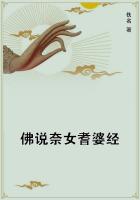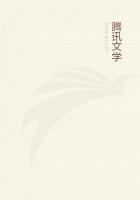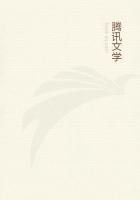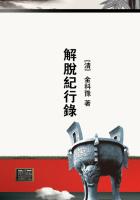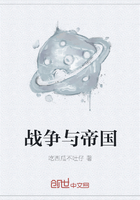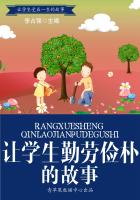"How infinitely rapid is the succession of thought! While I am speaking, perhaps no two ideas are in my mind at the same time, and yet with what facility do I slide from one to another! If my discourse be argumentative, how often do I pass in review the topics of which it consists, before I utter them; and, even while I am speaking, continue the review at intervals, without producing any pause in my discourse! How many other sensations are experienced by me during this period, without so much as interrupting, that is, without materially diverting, the train of my ideas! My eye successively remarks a thousand objects that present themselves. My mind wanders to the different parts of my body, and receives a sensation from the chair on which I sit, or the table on which I lean. It reverts to a variety of things that occurred in the course of the morning, in the course of yesterday, the most remote from, the most unconnected with, the subject that might seem wholly to engross me. I see the window, the opening of a door, the snuffing of a candle. When these most perceptibly occur, my mind passes from one to the other, without feeling the minutest obstacle, or being in any degree distracted by their multiplicity[12]."
[12] Political Justice, Book IV, Chapter ix.
If this statement should appear to some persons too subtle, it may however prepare us to form a due estimate of the following remarks.
"Art is long." No, certainly, no art is long, compared with the natural duration of human life from puberty to old age. There is perhaps no art that may not with reasonable diligence be acquired in three years, that is, as to its essential members and its skilful exercise. We may improve afterwards, but it will be only in minute particulars, and only by fits. Our subsequent advancement less depends upon the continuance of our application, than upon the improvement of the mind generally, the refining of our taste, the strengthening our judgment, and the accumulation of our experience.
The idea which prevails among the vulgar of mankind is, that we must make haste to be wise. The erroneousness of this notion however has from time to time been detected by moralists and philosophers; and it has been felt that he who proceeds in a hurry towards the goal, exposes himself to the imminent risk of never reaching it.
The consciousness of this danger has led to the adoption of the modified maxim, Festina lente, Hasten, but with steps deliberate and cautious.
It would however be a more correct advice to the aspirant, to say, Be earnest in your application, but let your march be vigilant and slow.
There is a doggrel couplet which I have met with in a book on elocution:
Learn to speak slow: all other graces Will follow in their proper places.
I could wish to recommend a similar process to the student in the course of his reading.
Toplady, a celebrated methodist preacher of the last age, somewhere relates a story of a coxcomb, who told him that he had read over Euclid's Elements of Geometry one afternoon at his tea, only leaving out the A's and B's and crooked lines, which seemed to be intruded merely to retard his progress.
Nothing is more easy than to gabble through a work replete with the profoundest elements of thinking, and to carry away almost nothing, when we have finished.
The book does not deserve even to be read, which does not impose on us the duty of frequent pauses, much reflecting and inward debate, or require that we should often go back, compare one observation and statement with another, and does not call upon us to combine and knit together the disjecta membra.
It is an observation which has often been repeated, that, when we come to read an excellent author a second and a third time, we find in him a multitude of things, that we did not in the slightest degree perceive in a first reading. A careful first reading would have a tendency in a considerable degree to anticipate this following crop.
Nothing is more certain than that a schoolboy gathers much of his most valuable instruction when his lesson is not absolutely before him. In the same sense the more mature student will receive most important benefit, when he shuts his book, and goes forth in the field, and ruminates on what he has read. It is with the intellectual, as with the corporeal eye: we must retire to a certain distance from the object we would examine, before we can truly take in the whole. We must view it in every direction, "survey it," as Sterne says, "transversely, then foreright, then this way, and then that, in all its possible directions and foreshortenings[13];" and thus only can it be expected that we should adequately comprehend it.
[13] Tristram Shandy, Vol. IV, Chap. ii.
But the thing it was principally in my purpose to say is, that it is one of the great desiderata of human life, not to accomplish our purposes in the briefest time, to consider "life as short, and art as long," and therefore to master our ends in the smallest number of days or of years, but rather to consider it as an ample field that is spread before us, and to examine how it is to be filled with pleasure, with advantage, and with usefulness.
Life is like a lordly garden, which it calls forth all the skill of the artist to adorn with exhaustless variety and beauty; or like a spacious park or pleasure-ground, all of whose inequalities are to be embellished, and whose various capacities of fertilisation, sublimity or grace, are to be turned to account, so that we may wander in it for ever, and never be wearied.
We shall perhaps understand this best, if we take up the subject on a limited scale, and, before we consider life in its assigned period of seventy years, first confine our attention to the space of a single day. And we will consider that day, not as it relates to the man who earns his subsistence by the labour of his hands, or to him who is immersed in the endless details of commerce. But we will take the case of the man, the whole of whose day is to be disposed of at his own discretion.

